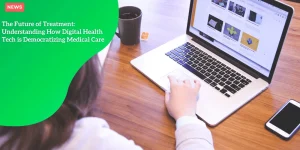College Introduces Industry-Aligned Remote Work Training for T-Level Students
Anúncios
Lincoln College’s Innovative Approach to T-Level Education
Introduction of Remote Work Placements in T-Level Curriculum Starting September
| 🚀 Initiative | 📌 Key Details |
|---|---|
| Remote Work Placements | Students gain real-world experience in virtual work environments, aligning with modern industry trends. |
| Integration into T-Level Curriculum | The program ensures students meet mandatory placement requirements while adapting to evolving work styles. |
| Equivalence to A-Levels | T-Levels provide an alternative technical qualification path, ensuring strong career prospects. |
| Industry-Driven Learning | Designed to reflect current business environments, preparing students for future employment. |
Aligning Curriculum with Industry Standards
To ensure that the curriculum remains industry-relevant, Lincoln College has worked closely with employers across various sectors.
Anúncios
This collaboration has been pivotal in deciding that 50% of placements in digital courses can be completed remotely, as highlighted by Lincoln College’s Assistant Principal for Heart, Health, and Care, Steve Horsfield.
He emphasized that the decision was made to “replicate what’s going on in the industry itself” and was thoroughly researched and validated by industry partners.
Anúncios
This alignment ensures that the skills students develop will be in sync with the demands and trends of the workforce.
Providing Realistic Industry Experience
The primary goal of incorporating remote work opportunities into T-Level placements is to offer students a realistic glimpse into the evolving world of work.
Remote working has become an integral part of various industries, especially in the wake of the COVID-19 pandemic, which has significantly shifted workplace practices.
By providing students with remote work placements, Lincoln College is preparing them to navigate and thrive in the modern, flexible work environment.
By adopting remote work placements in its T-Level curriculum, Lincoln College is not only responding to current workplace trends but also ensuring that students are well-equipped with the skills needed for their future careers.
Industry-Aligned Remote Work Implementation
Integrating Remote Placements
Starting in September, Lincoln College is setting a trailblazing example by enabling 50% of digital course placements to be completed remotely.
This innovative inclusion in its T-Level curriculum intends to mirror the current industry trends, offering students a realistic glimpse into the modern world of remote working.
This initiative is not merely a spontaneous decision but rather a well-thought-out strategy developed through extensive consultations with industry partners.
Industry Consultations and Collaborations
Lincoln College is renowned for its close working relationship with industry professionals.
Assistant Principal Steve Horsfield emphasizes the importance of these collaborations, explaining that the decision to incorporate remote placements was made after numerous discussions with employers who are experiencing and advocating for remote work’s effectiveness in their sectors.
These consultations ensure that the remote work placements align perfectly with industry standards, benefiting both students and employers alike.
Suitability and Sector Relevance
Not all placements are designed to be remote-friendly.
The college, therefore, takes careful consideration of the suitability and relevance of each placement to ensure it meets the specific needs of the sector.
Industries vary significantly in their capacity to support remote work, and Lincoln College is committed to matching student placements with the most effective and productive environments.
This tailored approach guarantees that students only participate in remote work when it is appropriate and beneficial to their learning outcomes and career readiness.
As remote work becomes increasingly integrated into modern business practices, the college remains focused on melding these new approaches with traditional educational values to enhance student experience and employability.
The Rise of Remote Work in Modern Business
Remote work has become an increasingly common practice in today’s business world, a shift considerably accelerated by the COVID-19 pandemic.
Following the pandemic, many employees found themselves unable to go to a physical office.
As a result, companies and employees alike had to adapt quickly to new ways of working.
This adaptation has had a lasting effect on workplace culture and practices, reshaping what the typical work environment looks like.
 COVID has changed the way online study and work is viewed
COVID has changed the way online study and work is viewed
Shifting Work Practices and Statistics
A prime indicator of this shift comes from recent statistics revealing that 26% of people had engaged in hybrid working within a given week.
This form of working means spending some days in the office and other days working from home.
In addition, 14% of people reported working entirely from home during the same period, while 41% commuted to their workplace daily.
These numbers showcase a significant portion of the workforce adopting flexible working arrangements, a trend that shows no sign of reversal.
Industry Impacts of Remote Work
The rise of remote work has touched numerous industries, introducing both challenges and opportunities.
For instance, the tech and digital sectors have seen remote work become a norm, fostering greater flexibility and the ability to attract talent without geographical constraints.
However, some industries, such as manufacturing and healthcare, still require physical presence, making remote work less applicable.
The hybrid model has also brought debates on its efficiency.
Former Marks & Spencer boss, Lord Rose, criticized the new remote work culture, claiming it led to a generation of people “not doing proper work.” Conversely, proponents like Business Secretary Kwasi Kwarteng argue that flexible working arrangements improve productivity and resilience in the workforce.
Adapting to New Norms: Lincoln College’s Approach
Reflecting these industry changes, Lincoln College has integrated remote work placements into its T-Level curriculum.
The college’s initiatives come in response to extensive industry consultation, ensuring that the placements align with the current needs and standards of various sectors.
For students, these placements offer valuable, real-world experience tailored to the evolving nature of the modern work environment.
By staying ahead of workplace trends, Lincoln College aims to equip its students with the skills necessary to thrive in both remote and traditional settings, setting a strong foundation for their future careers.
This chapter has highlighted the ongoing shift towards remote work and its impact on various sectors.
As we delve deeper into Lincoln College’s approach, we will further explore how the institution prepares its students to navigate and succeed in this increasingly hybrid work landscape.
Debating the Value of Remote Work Experience
The rise of remote work, while widely adopted by many industries, remains a contentious topic.
Business leaders are divided on whether remote work is a boon or a bane for productivity and employee engagement.
Contrasting Viewpoints on Effectiveness
Remote work has its champions and detractors among industry leaders.
Lord Rose, the former Marks & Spencer boss, is a notable critic. He believes that working from home has led to a generation of people “not doing proper work”.
His concern is that without the structure and oversight of a traditional office, work quality and employee accountability might suffer.
Conversely, proponents like Business Secretary Kwasi Kwarteng champion remote work for enhancing productivity and resilience.
Flexible working, he argues, allows for a more adaptable and motivated workforce, capable of maintaining productivity levels even in fluctuating circumstances.
This flexibility can be particularly valuable during times of crisis, such as the COVID-19 pandemic.
Balancing Traditional and Modern Practices
While remote work offers numerous advantages, it is not a one-size-fits-all solution.
Different sectors, such as healthcare, necessitate physical presence, making complete remote work impractical.
On the other hand, tech and digital industries find remote work highly compatible with their operations.
Businesses need to strike a balance, blending the best of traditional and modern workplace practices to suit their specific needs.
Productivity and Resilience
A key argument for remote work is its potential to boost productivity. Employees can often work more effectively without the distractions of an office environment.
However, this requires strong self-discipline and time-management skills, which might not be inherent to all.
Additionally, remote work fosters resilience.
Companies that have embraced flexible working structures are better positioned to respond to unforeseen disruptions, maintaining continuity and minimizing downtime.
As Lincoln College integrates remote work placements into its T-Level curriculum, these contrasting viewpoints provide a rich context for students.
It is essential for them to understand the diverse perspectives and prepare for the dynamic, evolving work environments of the future.
By examining these debates, students can better appreciate the nuances of remote work and develop a more rounded view of its potential and limitations.
Preparing Students for the Future of Work
Development of Essential Remote Working Skills
The future workforce is rapidly evolving, and Lincoln College is taking proactive steps to prepare T-Level students accordingly.
Recognizing the vital need for remote work skills, which have become indispensable in the modern job market, Lincoln College has integrated this focus into their curriculum.
Students will learn vital competencies such as digital communication, time management, and self-discipline, which are essential for thriving in remote work environments.
The curriculum includes specific modules designed to help students master tools such as project management software, virtual collaboration platforms, and cybersecurity best practices.
By immersing students in real-world scenarios, the college ensures that they are not just learning theoretically but also applying these skills in practical settings.
Alignment with Evolving Workplace Trends
The introduction of remote work placements is a direct response to the significant shift in workplace culture over recent years.
Post-pandemic, there has been a notable increase in hybrid working models, and Lincoln College is aligning its educational programs accordingly.
This shift acknowledges that the traditional 9-to-5 office routine is no longer the sole model of productivity and collaboration.
Through extensive consultation with industry partners, Lincoln College ensures that their T-Level programs are not only current but also forward-thinking.
These consultations have helped identify which sectors can best benefit from remote placements and have informed the design of the curriculum to ensure relevance and applicability to current industry standards.
Ensuring Practical, Industry-Relevant Experience
Lincoln College places a strong emphasis on the quality and relevance of work placements.
By incorporating remote work options, they offer students realistic industry experience that mirrors contemporary work environments.
This includes ensuring that remote placements are only utilized when they are genuinely suitable for the specific job roles and sectors.
This careful consideration guarantees that students gain practical, transferable skills that enhance their employability.
Participating in remote placements enables students to experience the flexibility, discipline, and self-motivation required in modern work settings, making them well-prepared for future careers.
The college remains committed to offering industry-relevant, experiential learning opportunities that align with the evolving demands of the job market.
By equipping students with these essential skills and experiences, Lincoln College is paving the way for a new generation of workers ready to excel in diverse and dynamic roles.






